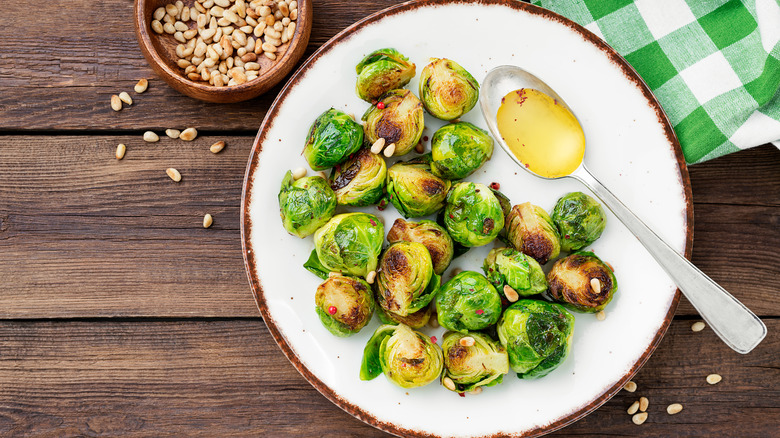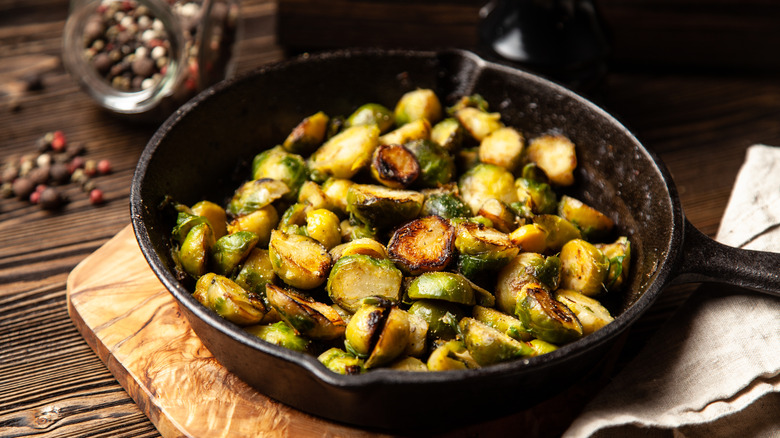Here's How You Can Reduce The Smell Of Brussels Sprouts
Brussels sprouts were not always a trendy vegetable to serve on holidays and at posh restaurants. Without overstating it, pretty much everyone used to hate them because these miniature cabbage-looking veggies had an overly bitter taste. In fact, before these green babies became popular, their best use was probably lighting up a Christmas tree in London (via The Daily Mail).
But per NPR, that hate, like the Brussels sprout, has evolved. In the 1990s Brussels spouts were reimagined thanks to a Dutch scientist who was able to determine what gave these sprouts that biting taste. This allowed growers to take seeds from Brussels sprouts of yore and "cross pollinate" them with our modern engineered seeds. And as Better Homes & Gardens notes, today, the Brussels sprouts at our grocery stores are the kind that contain a smaller amount of the natural chemicals known as glucosinolates that cause that bitter taste in the first place. Problem solved ... Well, almost.
Brussels sprouts have another trait that makes them a little less than appealing: How they smell when you cook them. Yes, according to the Los Angeles Times, Brussels sprouts inherited another gene that causes them to stink up your kitchen when you cook them. When you cook Brussels sprouts they give off a gas: hydrogen sulfide. And if you are the least bit sensitive to smells, it will make you want to hurl. But there is good news.
There's a way to reduce the smell of your Brussels sprouts
The Cookful has revealed a way to lessen that stank, and if you are a fan of Brussels sprouts, you will be thanking them for sharing. The site notes that after reading "CookWise: The Hows and Whys of Successful Cooking" by Shirley Corriher, they've discovered the secret to reducing the smell is dependent on the speed at which you cook your sprouts. Corriher wrote, "The secret to cooking [Brussels sprouts] is to cook them less than five minutes." This decrease in cooking time will hinder your sprouts from releasing those gases that make you want to plug your nose.
The Los Angeles Times explains that this starts with purchasing the smallest Brussels sprouts you can find because they will cook quicker than the large ones. They also suggest either steaming or blanching your sprouts, saying you can go as long as 7 minutes — but that should be the maximum amount of time you allow them to cook if you want them sweet and delish. If steaming and blanching aren't your preferred method of cooking Brussels sprouts, The Cookful recommends a good sauté or broil. But whatever way you choose, just remember to cook your sprouts fast if you don't want your kitchen to smell like someone set off a stink bomb in the boys high school bathroom.

